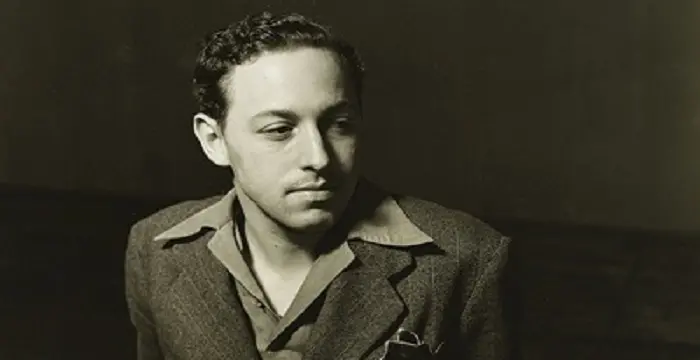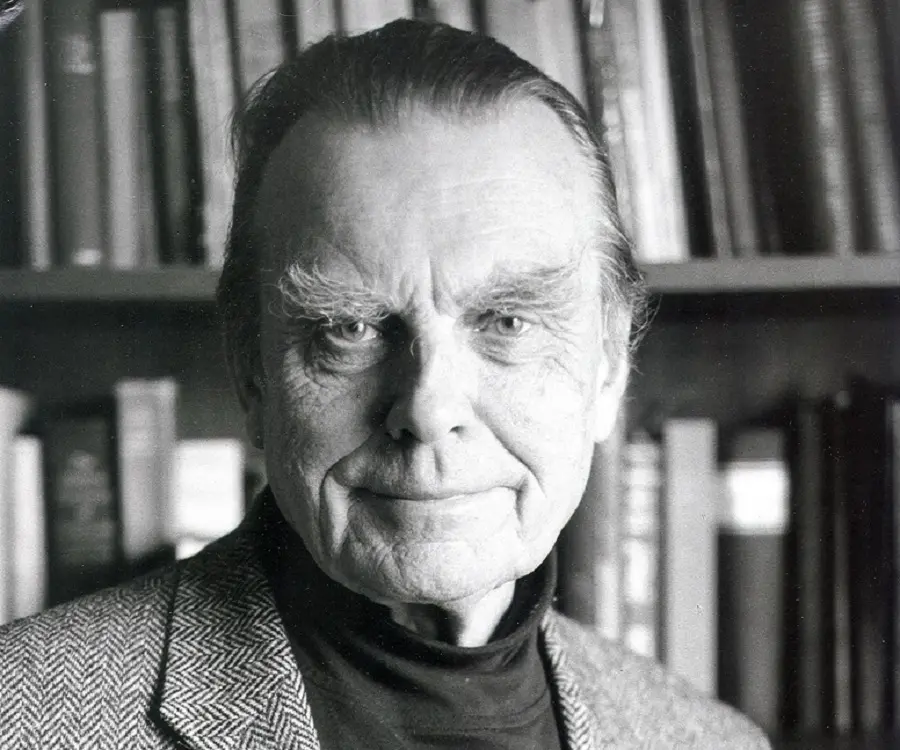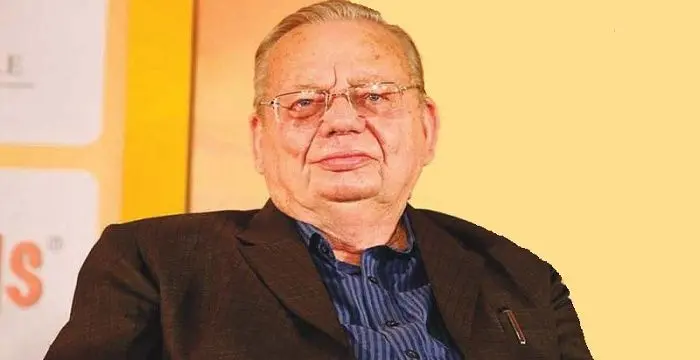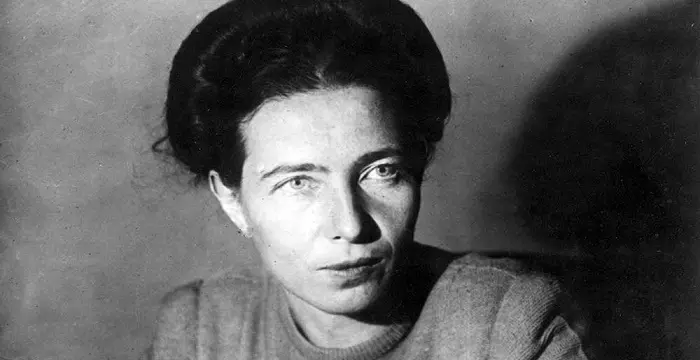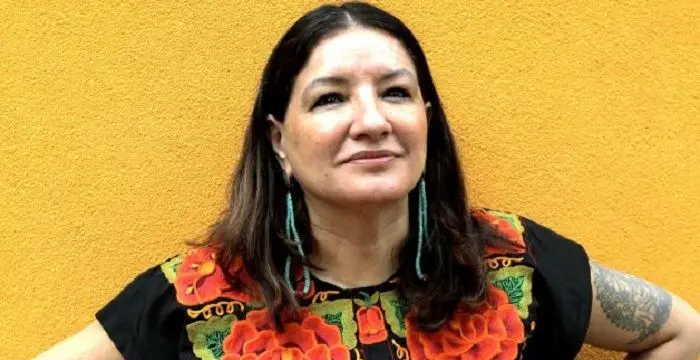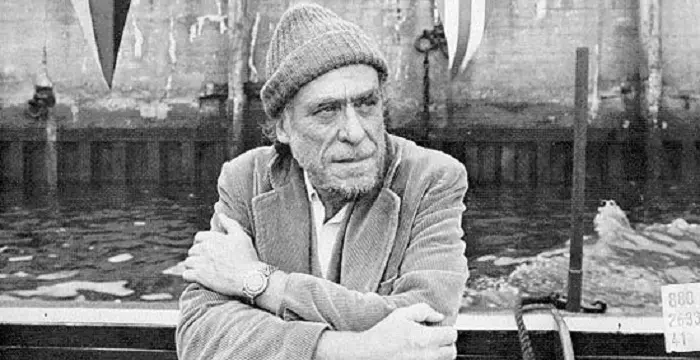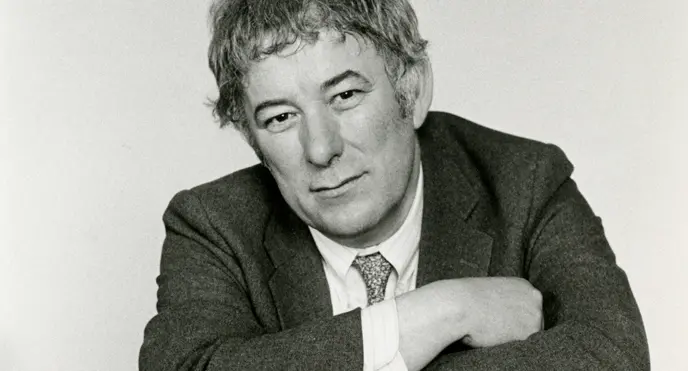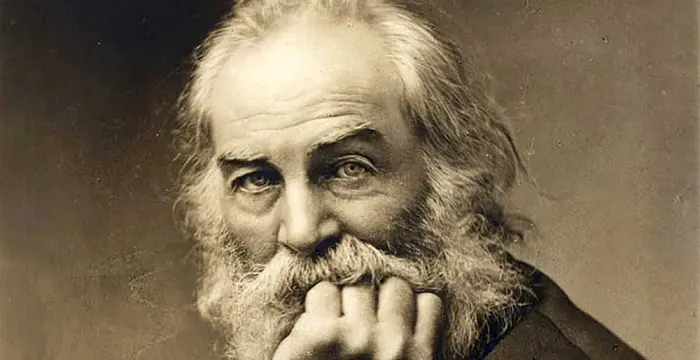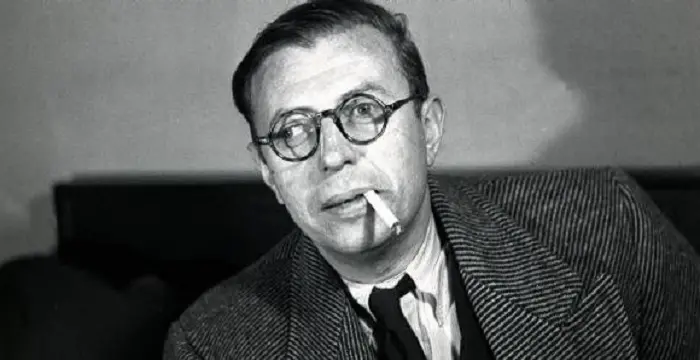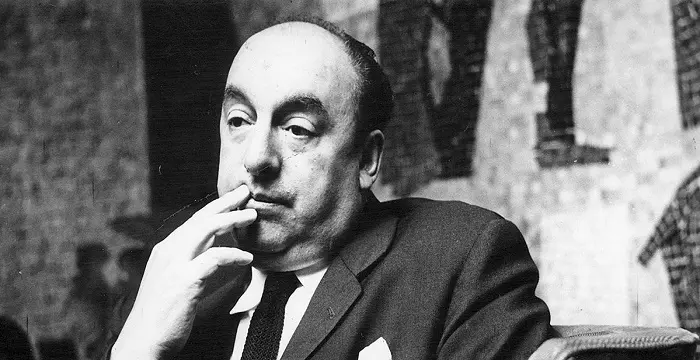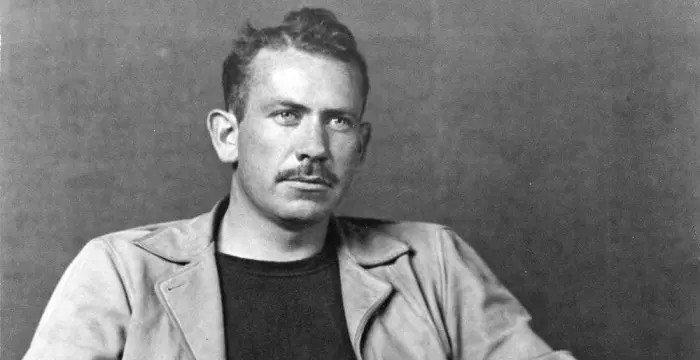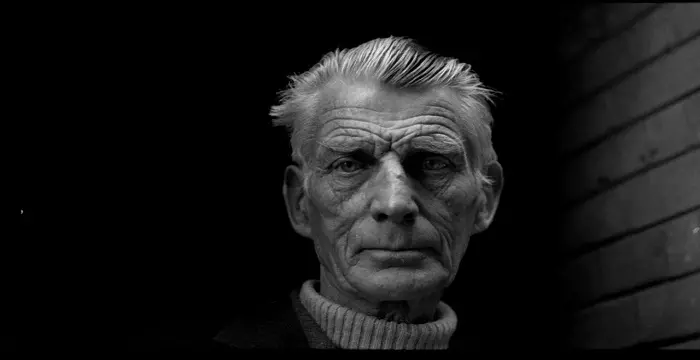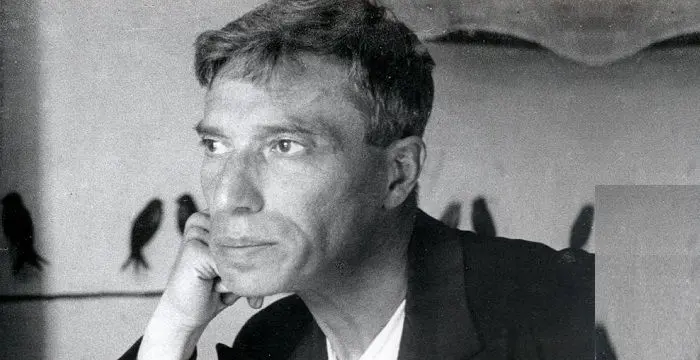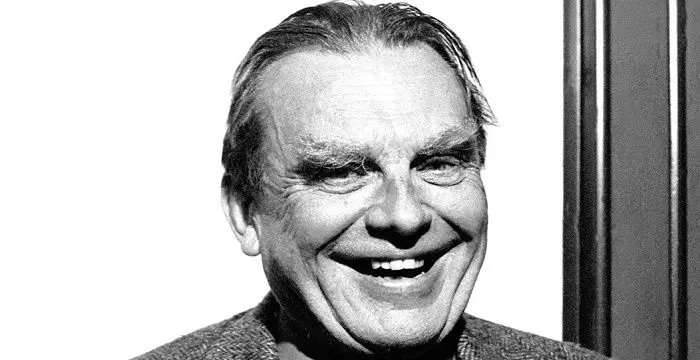
Czesław Miłosz - Essayists, Life Achievements and Family
Czesław Miłosz's Personal Details
Czeslaw Milosz was a prominent Polish-American novelist, translator, essayist and a Nobel laureate
| Information | Detail |
|---|---|
| Birthday | June 30, 1911 |
| Died on | August 14, 2004 |
| Nationality | Polish |
| Famous | Nobel Laureates In Literature, Writers, Poets, Essayists |
| Nick names | Jan Syruć, John Syruć |
| Spouses | Carol Thigpen, Janina Miłosz |
| Siblings | Andrzej Miłosz |
| Known as | Czeslaw Milosz |
| Childrens | Anthony Milosz, John Peter Milosz |
| Universities |
|
| Birth Place | Šeteniai |
| Religion | Catholicism |
| Gender | Male |
| Father | Aleksander Milosz |
| Mother | Weronika Milosz |
| Sun Sign | Cancer |
| Born in | Šeteniai |
| Famous as | Poet |
| Died at Age | 93 |
// Famous Writers
Joyce Meyer
Joyce Meyer is a Christian author and speaker. This biography provides detailed information about her childhood, life, achievements, works & timeline
Temple Grandin
Temple Grandin is a well-known American writer, autistic activist and animal expert. This biography profiles her childhood, life, achievements, career and timeline
Tennessee Williams
Tennessee Williams was one of the greatest playwrights of the 20th century. This biography of Tennessee Williams provides detailed information about his childhood, life, achievements, works and timeline.
Czesław Miłosz's photo
Who is Czesław Miłosz?
Czeslaw Milosz was a renowned poet, novelist, essayist and translator, who influenced the young generation towards the turn of the 20th century through his pre-war and wartime collections. He regarded himself as a Polish poet, simply because it was his native mother tongue and he chose to compose his creations in Polish, despite the fact that he was born in Lithuania and not Poland. While he authored all his prose, poetry and essay collections in Polish language, he also exhibited his caliber in translation, which included the Polish version of ‘Psalms’ from Greek and Hebrew, apart from translated works of numerous eminent authors into Polish, namely, William Shakespeare, T.S. Eliot, Walt Whitman, and Charles Baudelaire. Moreover, his works have been translated into over 42 languages, by various poets, such as Robert Hass, Robert Pinsky, and Peter Dale Scott. His literary works won him several prestigious awards, including the Nobel Prize in 1980, besides a number of honorary doctorate degrees from American and Polish universities. His most notable works are ‘Zniewolony umysl’ (The Captive Mind, 1953), ‘Zdobycie wladzy’ (The Seizure of Power, 1955), ‘Traktat poetycki’ (A Poetical Treatise, 1957), and ‘Rodzinna Europa’ (Native Realm: A Search for Self Definition, 1959)
// Famous Essayists
Ruskin Bond
Ruskin Bond is an award winning Indian author of British descent. This biography of Ruskin Bond provides detailed information about his childhood, life, achievements, works & timeline.
Simone de Beauvoir
Simone de Beauvoir was an eminent French writer, intellectual, activist, and philosopher. This biography profiles her childhood, life, thoughts, achievements and timeline.
Sandra Cisneros
Sandra Cisneros is an American writer known for audaciously penning the realities and expectations from females in US and Mexico. This biography provides detailed information about her childhood, life, achievements, works & timeline
Childhood & Early Life
Czeslaw Milosz was born on June 30, 1911, in Szetejnie, Kovno Governorate, Russian Empire (now Lithuania), to civil engineer Alexander Milosz and Weronika nee Kunat.
He spent his early years traveling across Russia with his father, who served in the Czar’s army during World War I.
After returning to Lithuania in 1918, the family settled in the then Polish Lithuanian capital, Wilno (now Vilnius), where his formal schooling commenced.
He completed his secondary schooling from Sigismund Augustus Gymnasium in 1929 and graduated from Stefan Batory University with a law degree in 1931.
He received a Masters degree in law from Stefan Batory University in 1934 after which he went to Paris on a one-year fellowship sponsored by the National Cultural Fund.
Career
After earning his law degree, he traveled to Paris in 1931 where he met his distant cousin Oscar Milosz, a Lithuanian French-language poet, who became his inspiration for poetry.
In 1931, he established the Polish avant-garde poetic group ‘Zagary’, along with other poets, namely, Aleksander Rymkiewicz, Jozef Maslinski, Jerzy Zagorski, Teodor Bujnicki, and Jerzy Putrament.
He released his first book of poems titled ‘Poemat o czasie zastyglym’ (Poem of the Frozen Time) in 1934.
In 1936, he started working as a literary commentator at Radio Wilno, but was dismissed a year later for his leftist views. He published his second poetry collection ‘Trzy zimy’ (Three Winters), which was well-received by literary critics.
He moved to Warsaw in 1937 where he took up a job with Polish Radio and spent the entire World War II writing for various underground presses and working as a janitor at the University Library.
When the War ended, he joined the newly formed Polish communist government as a diplomat, first in New York City and then Washington DC. However, he defected in 1951 and received political asylum in Maison-Lafitte, outside Paris.
He released ‘Ocalenie’ (Rescue) in 1945 as a collection of pre-war and wartime poems, which went on to become one of the most notable works of 20th century Polish poetry.
During his defection in Paris, he worked as a freelance writer, authoring novels ‘The Captive Mind’ (1953), ‘The Seizure of Power’ (1955), ‘The Issa Valley’ (1955), and autobiography ‘Native Realm: A Search for Self Definition’ (1959).
He completed two volumes of poetry, namely, ‘The Light of Day’ (1954) and ‘A Poetical Treatise’ (1957), which were banned in Poland and later published by the Instytut Literacki in Paris.
He relocated to the United States in 1960 to work as a lecturer in Polish literature at the University of California, Berkeley. A year later in 1961, he became a professor of Slavic Languages and Literatures.
He continued to publish poetry collections in America, some being ‘King Popiel and Other Poems’ (1962), ‘Gucio Enchanted’ (1965), ‘City Without a Name’ (1969), and ‘Where the Sun Rises and Where it Sets’ (1974).
He received American citizenship in 1970.
For years, his works were banned in Poland and were circulated only through underground sources, but after he received the Nobel Prize in 1980, the communist government relented and his works started getting issued legally.
His popular prose works include ‘The History of Polish Literature’ (1969), ‘Visions from San Francisco Bay’ (1969), ‘Private Obligations’ (1974), ‘The Land of Ulro’ (1977), ‘The Witness of Poetry’ (1983), and ‘Starting from My Streets’ (1985).
Among his renowned poetry collections are ‘Unattainable Earth’ (1984), ‘Chronicles’ (1989), ‘Facing the River’ (1994), ‘Orpheus and Eurydice’ (2003), and ‘Last Poems’ (2006).
Apart from authoring a diverse range of prose and poetry works, he also translated works of other Polish writers into English and released a Polish version of the Old Testament ‘Psalms’.
His translations into Polish included works of other distinguished writers, such as William Shakespeare, Charles Baudelaire, Walt Whitman, John Milton, T.S. Eliot, and Simone Weil.
Awards & Achievements
He received the Prix Litteraire Europeen (European Literary Prize) for his novel ‘The Seizure of Power’ from the Swiss Book Guild, in 1953.
In 1971, he won an award from the Polish P.E.N. Club, Warsaw, for his poetry translations.
He won a Guggenheim Fellowship for poetry and received an honorary Doctor of Letters degree from the University of Michigan, in 1977.
In 1978, he was bestowed with the Neustadt International Prize for Literature and received the Berkeley Citation (equivalent to honorary PhD) from the University of California, Berkeley.
He was honored with the prestigious Nobel Prize for Literature in 1980.
He was awarded with the U.S. National Medal of Arts and received an honorary doctorate degree from Harvard University, in 1989.
In 1989, he won a ‘Righteous among the Nations’ medal in Yad Vashem, Israel, towards his active participation in the “The ‘Freedom’ Socialist Pro-Independence Organization” during the Holocaust.
He was granted honorary citizenship of Lithuania in 1992 and of Krakow city in 1993.
Personal Life & Legacy
He married Janina Dluska in 1944, with whom he fathered two sons – Anthony (1947) and John Peter (1951). Janina died from Alzheimer’s disease in 1986.
In 1992, he re-married Carol Thigpen, a US-born historian and associate dean at Emory University, Atlanta. She died in 2002.
He died on August 14, 2004, at his residence in Krakow, Poland, at the age of 93.
He was interred at the ancient Skalka Roman Catholic Church, Krakow, in the presence of thousands of his admirers, including prominent figures from the Polish cultural and political life.
His works have been translated into several languages by various popular translators, such as Peter Dale Scott, Robert Hass, Jane Zielonko, and Robert Pinsky.
The Czeslaw Milosz Award was established by the Lithuania National Artists Association, Journalists’ Union in Lithuania and Polish Institute in Vilnius to award unique and finest literary works in Poland and Lithuania.
The year 2011 was declared as ‘The Milosz Year’, which saw a conference on his relations with America at the Yale University, an exhibition of his works by the Beinecke Rare Book and Manuscript Library, and a large conference in Krakow
// Famous Poets
Charles Bukowski
Charles Bukowski was a German-born American novelist, short story writer and poet. With this biography, learn in details about his childhood, life, works, career and timeline
Seamus Heaney
Nobel Laureate Seamus Heaney was an Irish poet, playwright and translator. Know about his profile, childhood, life and timeline in the biography below.
Walt Whitman
Walt Whitman was an American poet, journalist and humanist. Read this brief biography to find more on his life & timeline.
Czesław Miłosz's awards
| Year | Name | Award |
|---|---|---|
Other | ||
| 0 | US & Canada - 1976 | |
| 0 | Nike Award Jury Award - 1998 | |
| 0 | Nobel Prize in Literature - 1980 | |
| 0 | Neustadt International Prize for Literature - 1978 | |
| 0 | Guggenheim Fellowship for Creative Arts | |
Czesław Miłosz biography timelines
- // 30th Jun 1911Czeslaw Milosz was born on June 30, 1911, in Szetejnie, Kovno Governorate, Russian Empire (now Lithuania), to civil engineer Alexander Milosz and Weronika nee Kunat.
- // 1918After returning to Lithuania in 1918, the family settled in the then Polish Lithuanian capital, Wilno (now Vilnius), where his formal schooling commenced.
- // 1929 To 1931He completed his secondary schooling from Sigismund Augustus Gymnasium in 1929 and graduated from Stefan Batory University with a law degree in 1931.
- // 1931After earning his law degree, he traveled to Paris in 1931 where he met his distant cousin Oscar Milosz, a Lithuanian French-language poet, who became his inspiration for poetry.
- // 1931In 1931, he established the Polish avant-garde poetic group ‘Zagary’, along with other poets, namely, Aleksander Rymkiewicz, Jozef Maslinski, Jerzy Zagorski, Teodor Bujnicki, and Jerzy Putrament.
- // 1934He received a Masters degree in law from Stefan Batory University in 1934 after which he went to Paris on a one-year fellowship sponsored by the National Cultural Fund.
- // 1934He released his first book of poems titled ‘Poemat o czasie zastyglym’ (Poem of the Frozen Time) in 1934.
- // 1936In 1936, he started working as a literary commentator at Radio Wilno, but was dismissed a year later for his leftist views. He published his second poetry collection ‘Trzy zimy’ (Three Winters), which was well-received by literary critics.
- // 1937He moved to Warsaw in 1937 where he took up a job with Polish Radio and spent the entire World War II writing for various underground presses and working as a janitor at the University Library.
- // 1944 To 1986He married Janina Dluska in 1944, with whom he fathered two sons – Anthony (1947) and John Peter (1951). Janina died from Alzheimer’s disease in 1986.
- // 1945He released ‘Ocalenie’ (Rescue) in 1945 as a collection of pre-war and wartime poems, which went on to become one of the most notable works of 20th century Polish poetry.
- // 1951When the War ended, he joined the newly formed Polish communist government as a diplomat, first in New York City and then Washington DC. However, he defected in 1951 and received political asylum in Maison-Lafitte, outside Paris.
- // 1953 To 1959During his defection in Paris, he worked as a freelance writer, authoring novels ‘The Captive Mind’ (1953), ‘The Seizure of Power’ (1955), ‘The Issa Valley’ (1955), and autobiography ‘Native Realm: A Search for Self Definition’ (1959).
- // 1953He received the Prix Litteraire Europeen (European Literary Prize) for his novel ‘The Seizure of Power’ from the Swiss Book Guild, in 1953.
- // 1954 To 1957He completed two volumes of poetry, namely, ‘The Light of Day’ (1954) and ‘A Poetical Treatise’ (1957), which were banned in Poland and later published by the Instytut Literacki in Paris.
- // 1960 To 1961He relocated to the United States in 1960 to work as a lecturer in Polish literature at the University of California, Berkeley. A year later in 1961, he became a professor of Slavic Languages and Literatures.
- // 1962 To 1974He continued to publish poetry collections in America, some being ‘King Popiel and Other Poems’ (1962), ‘Gucio Enchanted’ (1965), ‘City Without a Name’ (1969), and ‘Where the Sun Rises and Where it Sets’ (1974).
- // 1969 To 1985His popular prose works include ‘The History of Polish Literature’ (1969), ‘Visions from San Francisco Bay’ (1969), ‘Private Obligations’ (1974), ‘The Land of Ulro’ (1977), ‘The Witness of Poetry’ (1983), and ‘Starting from My Streets’ (1985).
- // 1970He received American citizenship in 1970.
- // 1971In 1971, he won an award from the Polish P.E.N. Club, Warsaw, for his poetry translations.
- // 1977He won a Guggenheim Fellowship for poetry and received an honorary Doctor of Letters degree from the University of Michigan, in 1977.
- // 1978In 1978, he was bestowed with the Neustadt International Prize for Literature and received the Berkeley Citation (equivalent to honorary PhD) from the University of California, Berkeley.
- // 1980For years, his works were banned in Poland and were circulated only through underground sources, but after he received the Nobel Prize in 1980, the communist government relented and his works started getting issued legally.
- // 1980He was honored with the prestigious Nobel Prize for Literature in 1980.
- // 1984 To 2006Among his renowned poetry collections are ‘Unattainable Earth’ (1984), ‘Chronicles’ (1989), ‘Facing the River’ (1994), ‘Orpheus and Eurydice’ (2003), and ‘Last Poems’ (2006).
- // 1989He was awarded with the U.S. National Medal of Arts and received an honorary doctorate degree from Harvard University, in 1989.
- // 1989In 1989, he won a ‘Righteous among the Nations’ medal in Yad Vashem, Israel, towards his active participation in the “The ‘Freedom’ Socialist Pro-Independence Organization” during the Holocaust.
- // 1992 To 1993He was granted honorary citizenship of Lithuania in 1992 and of Krakow city in 1993.
- // 1992 To 2002In 1992, he re-married Carol Thigpen, a US-born historian and associate dean at Emory University, Atlanta. She died in 2002.
- // 14th Aug 2004He died on August 14, 2004, at his residence in Krakow, Poland, at the age of 93.
- // 2011The year 2011 was declared as ‘The Milosz Year’, which saw a conference on his relations with America at the Yale University, an exhibition of his works by the Beinecke Rare Book and Manuscript Library, and a large conference in Krakow
// Famous Nobel Laureates In Literature
Seamus Heaney
Nobel Laureate Seamus Heaney was an Irish poet, playwright and translator. Know about his profile, childhood, life and timeline in the biography below.
Jean-Paul Sartre
Jean-Paul Sartre was a great existentialist philosopher of the 20th century. Check out this biography to know about his childhood, family life, achievements and other facts related to his life.
Pablo Neruda
Pablo Neruda was a Chilean poet, politician and Nobel laureate. Go through this biography to learn more about his profile, childhood, life and timeline.
John Steinbeck
John Steinbeck was a celebrated American writer famous for his novel, ‘The Grapes of Wrath’. Read on for detailed information about his childhood, profile, career and timeline
Samuel Beckett
Samuel Beckett was an Irish playwright, novelist, theatre director and poet. This biography profiles his childhood, life, works, achievements and timeline
Boris Pasternak
Boris Leonidovich Pasternak was a Russian novelist, poet and translator. This biography of Boris Pasternak provides detailed information about his childhood, life, writing career, achievements and timeline.
Czesław Miłosz's FAQ
What is Czesław Miłosz birthday?
Czesław Miłosz was born at 1911-06-30
When was Czesław Miłosz died?
Czesław Miłosz was died at 2004-08-14
Where was Czesław Miłosz died?
Czesław Miłosz was died in Kraków
Which age was Czesław Miłosz died?
Czesław Miłosz was died at age 93
Where is Czesław Miłosz's birth place?
Czesław Miłosz was born in Šeteniai
What is Czesław Miłosz nationalities?
Czesław Miłosz's nationalities is Polish
What is Czesław Miłosz nick names?
Czesław Miłosz's nickNames is Jan Syruć, John Syruć
Who is Czesław Miłosz spouses?
Czesław Miłosz's spouses is Carol Thigpen, Janina Miłosz
Who is Czesław Miłosz siblings?
Czesław Miłosz's siblings is Andrzej Miłosz
Who is Czesław Miłosz childrens?
Czesław Miłosz's childrens is Anthony Milosz, John Peter Milosz
What was Czesław Miłosz universities?
Czesław Miłosz studied at 1934 - Vilnius University
What is Czesław Miłosz's religion?
Czesław Miłosz's religion is Catholicism
Who is Czesław Miłosz's father?
Czesław Miłosz's father is Aleksander Milosz
Who is Czesław Miłosz's mother?
Czesław Miłosz's mother is Weronika Milosz
What is Czesław Miłosz's sun sign?
Czesław Miłosz is Cancer
How famous is Czesław Miłosz?
Czesław Miłosz is famouse as Poet


